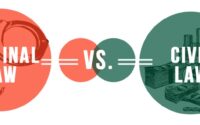ADVERSE POSSESSION: SWORD CUM SHIELD
This article has been written by Bhavya Verma from Jemtec School of Law, Greater Noida and curated by Yashasvi Kanodia from NMIMS’ Kirit P. Mehta School of Law, Mumbai.
The concept of adverse possession has been adopted from the common law concept which is nearly about 2000 years old. Historically, the concept of adverse possession relates to land being forcibly taken over or conquered by feudal lords, barons and conquerors of the poor, who could not protect their rights and titles over such land. Though this concept has changed over time, it was mostly prevalent in older times when one country’s ruler used to conquer another country and would simply grab those conquered lands from the original and true owner.
The theory of adverse possession is based on the principle that the possessor who improves and maintains the land has more valid claim on the land than the owner who never visits or takes care of it. The possessor needs to satisfy three classic requirements which were laid down by the Privy Council in 1912 in the case of Corea v. Appuhany, which should co-exist at the same time. These requirements are as follows: (i) nec vi (peaceful), (ii) nec clam (open), and (iii) nec precario (continuous).
There is no explicit definition of adverse possession, however, the Limitation Act, 1963 provides for the limitation to extinguishment and right to sue in this regard. The Act prescribes the required period of possession, which is 12 years for private land and 30 years for government land. Section 27 of the act exhausts the right of the owner after the limitation period. The rationale behind the statute is not to punish the owner, but to protect the interests of the possessor who has maintained the land for the specified time.
Even in countries such as the United Kingdom, the United States, Germany, France, Australia, etc., the concept of adverse land possession is recognized with different limitation periods for each country.
A plea of adverse possession is not a pure question of law but a blended one including questions of the law and facts. Therefore, the claimant has to prove the following clearly and necessarily, as he is trying to defeat the rights of the owner:
- Whether his possession was open and undisturbed or not;
- How long has his possession continued;
- What was the nature of his possession;
- On what date did he come into possession; and
- Whether the factum of possession was known to the other party or not.
In the case of Powell v. McFarlene, it was held that “if the law is to attribute possession of land to a person who can establish no paper title to possession, he must be shown to have both factual possession and the requisite intention to possess”.
The Supreme Court, in the case of Gurudwara Sahab v. Gram Panchayat Village Sirthala, stated that the plea of adverse possession can only be used as a shield by the defendant and not as a sword by the plaintiff. Therefore, it was made crystal clear that the possessor, though has ripened into ownership by virtue of adverse possession, he can use it as a defense only availing to defendant against plaintiff and not to file a suit seeking for a declaration for his title based on his prescriptive right. The said legal proposition was relied on by the honourable Supreme Court in the cases of State of Uttarakhand v. Mandir Shri Lakshmi Siddh and LRs v. Punjab Wakf Board.
In the case of Ravinder Kaur Grewal v. Manjit Kaur, the court over ruled the propositions made in the case of Gurudwara Sahab v. Gram Panchayat Village Sirthala, State of Uttarakhand v. Mandir Shri Lakshmi Siddh Maharaj and LRs v. Punjab Wakf Board, rekindling that the possessor claiming title by the virtue of adverse possession can maintain a suit under Article 65 of Schedule I of Limitation Act, 1963 for declaration of title and for permanent injunction in order to protect his possession. Interpreting Column III of the Act, the Court further stated that the plaintiff who has perfected title on the basis of adverse possession, cannot sue to evict a person or protect his possession. The court opined that once the right, interest or title is acquired, it can be used as a sword by the plaintiff as well as a shield by the defendant within the ken of Article 65 of the said Act. The court reiterated that neither trespassing nor possession is synonymous to adverse possession.
The law has been considered extremely draconian to the true owner and a blessing to a dishonest person who has taken property under his possession, and thereby the Court in cases such as Hemaji Waghaji v. Bhikhabhai Khengarbhai Harijan & ors. and State of Harayana v. Mukesh Kumar, has expressed the disapproval of the law several times and opined that the Parliament must seriously concern abolishing at least “bad faith” adverse possession, such as achieved through intentional trespassing. Often circumstances occur due to the law of adverse possession where true owners of immovable property are dispossessed either because of their non-deliberate inactions, deprivation or some other excuse why those true owners are unable to approach the court and take advantage of the legal remedies.
As it sends a wrong message to the society, therefore, there were also recommendations from across the legal fraternity spectrum to increase the limitation period to 30 and 50 years instead of merely 12 and 30 years respectively as this will ensure that those who advance such claims of adverse possession are only those who are intimately connected with the land.
In the light of the judgments of the Hon’ble Supreme Court, the Law Commission of India prepared a consultation paper cum questionnaire containing 11 questions relating to the adverse possession of immovable property. The questions put in the questionnaire were-whether the law of adverse possession should remain in the statutes or whether it is time to repeal them, should the true owner compensate the trespasser for the improvements he has made to the land, and so on. However, the Hon’ble Supreme Court, in the case of Ravinder Kaur, has put to rest the concept of the statute being irrational and illogical, which would impose an increased commitment to the property at issue and grant more time to the original owner to make a claim.


